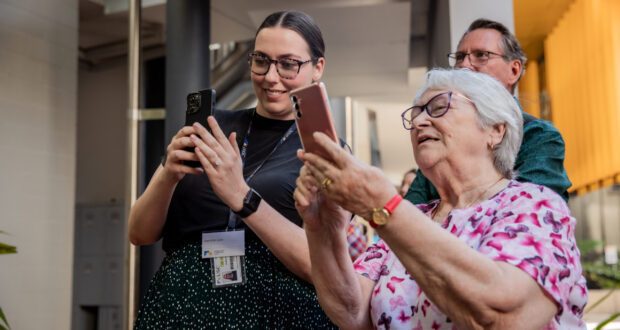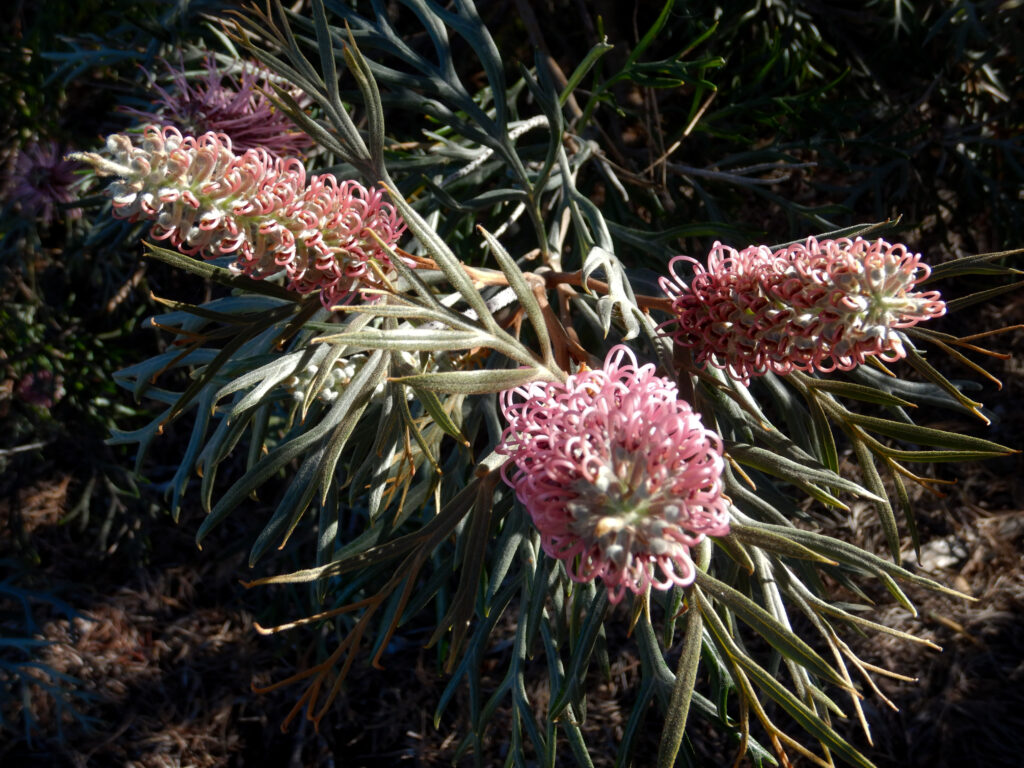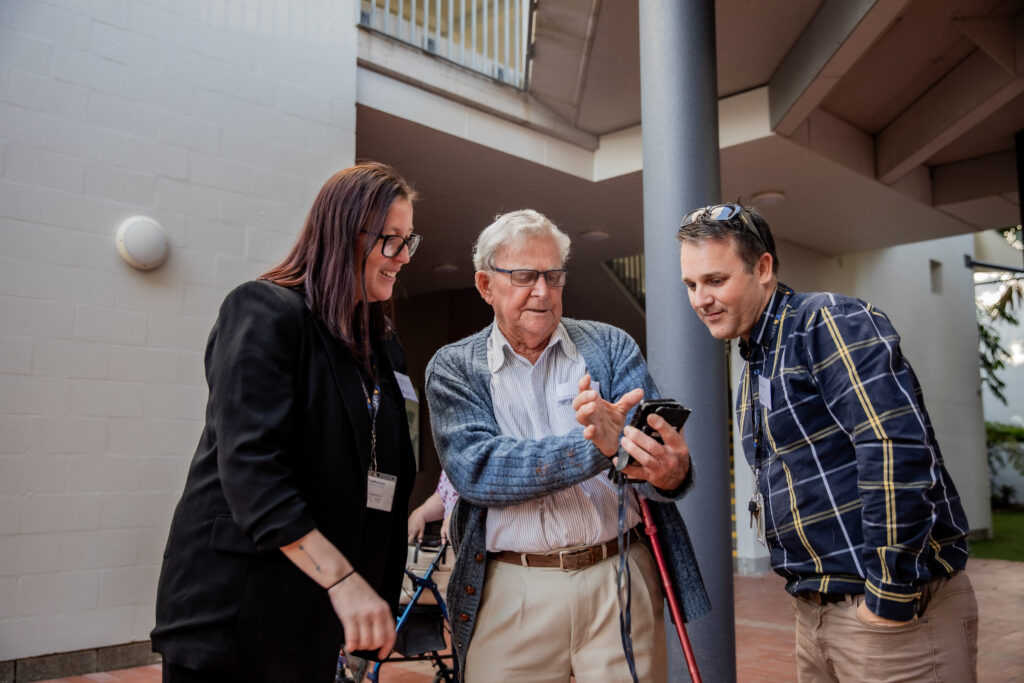A 'Photo Walk' project for older Australians conducted by the University of the Sunshine Coast (UniSC) in September found walking and socialising improved their mental and physical health.
The eight-week 'walk-and-talk' style sessions had nine participants from in-home care provider Comlink, aged 73 to 86, explore nature and take photos together; reporting that interacting with new people, engaging in an artistic outlet and being outdoors increased their mental health and wellbeing.
The participants visited nature reserves on the Sunshine Coast to snap their photos including the Mary Cairncross Scenic Reserve, Maroochy Botanic Gardens and the Maroochy Wetlands.
October is Mental Health Month, with World Mental Health Day on October 10. Many older Australians experience feelings of isolation, loneliness and depression due to a range of factors, including the loss of important social supports, poor physical health, and limited cognitive capacity.
Co-leader of Photo Walk Dr Dan Wadsworth, senior lecturer in health at UniSC, is passionate about providing services to support health and wellbeing among the ageing population. He says that poor mental health should not be considered a 'normal' part of ageing.
Dr Wadsworth emphasised that connection to nature can reduce stress and elevate mood, especially when combined with a sense of purpose and community.
"There is scope here for enormous impact on the health of Australians because a huge proportion of the older population is either lonely, socially isolated, depressed or all of the above – and these are all risks for dementia and cardiovascular disease," he says.
"We’re also beginning to learn more about the importance that purpose and meaning play in our health and wellbeing, and this is certainly true for older adults, who can [lose their sense of purpose] due to retirement, loss of family, and decreased independence."
Dr Wadsworth also told Aged Care Insite that although diagnosed cases of mental illness are not very common in older Australians, 15 per cent of a group of 65 to 85-year-olds said they had experienced symptoms of a mental disorder in the past 12-months, with some groups more vulnerable than others.
"[Poor mental health] is even more apparent in rural and regional older Australians, where disadvantages in accessing support and services magnify the issue resulting in increased rates of suicide and self-harm," he says.
"Perhaps unsurprisingly, the rates of depression among people living in residential aged care are believed to be much higher, around 35 per cent, highlighting the role that social connection and independence and autonomy have on wellbeing."
Co-leader of the project Dr Tricia King is a photography lecturer and researcher of creative arts and health at UniSC. Her work focuses on improving wellbeing for older people through creative engagement.
Dr King said social connection was the biggest benefit participants experienced, followed by increased movement and a developed love of photography.
"We take photographs of important moments in our lives, and I don’t think that happens often enough as people age," Dr King says.
"For many of them, they had become much less social over recent years, many feeling the effects of losing a partner, and so the project became a safe opportunity to connect again.”
Participants will showcase their work at the Vitality Village community space in the Sunshine Coast Health Precinct from the end of September.
Do you have an idea for a story?Email [email protected]
 Aged Care Insite Australia's number one aged care news source
Aged Care Insite Australia's number one aged care news source



